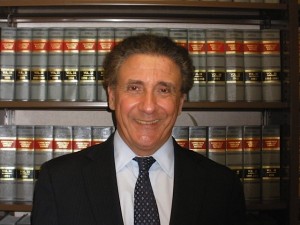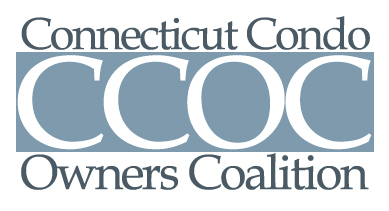How To Pressure Condo Boards To Make Repairs On Common Elements
A unit owner recently called my office to ask what rights she when the Association of Unit Owners and its Board refuses to make necessary repairs to common elements. She also asked whether unit owners could refuse to pay their common charges when the Association refuses to make needed repairs.
The Association and its Board must maintain, repair, and replace all common elements, and each unit owner must maintain, repair, and replace his unit, unless the condominium’s declaration provides otherwise (CGS § 47-249).
Unit owners must first carefully examine their Declaration to determine whether the property that needs repair is a “common element.” The law defines a “common element” as all portions of the common interest community other than the units any other interests in real property for the benefit of unit owners, which are subject to the declaration (CGS 47-202 (6)). The law defines a “unit” as a physical portion of the common interest community designated for separate ownership or occupancy, the boundaries of which are described in the declaration (CGS 47-202 (35) and 47-224(a)(5)).
A unit owner who believe the Association is failing to make a required repair to the common elements can bring this to the attention of other unit owners and attempt to get enough support from other owners to pressure or force the Association and its Board of Directors to make the necessary repairs. If this fails, the unit owner can seek a court order compelling the association to abide by its statutory duty since CGS § 47-212(b) specifies that any right or obligation established by the Common Interest Ownership Act is enforceable in court.
One thing a unit owner can’t do is to refuse to pay his or her common charges to protest the association’s refusal to make repairs to common elements. The law gives the association the right to assess each unit an amount for common expenses (CGS § 47-257). It also gives the association a lien against the unit of any unit owner who does not pay (CGS § 47-258). Unless the declaration otherwise provides, the lien includes reasonable attorneys’ fees and costs, other fees, charges, late charges, fines and interest charged (CGS 47-258 (a)).
The law does not explicitly give unit owners the right to withhold payment if they believe the association is not following the requirements established by law or the declaration. But it is not known how a court would rule under specific circumstances.
Hartford Atty George Coppolo is a member of the Connecticut Condo Owners Coalition (CCOC) Advisory Committee.
This article is for general informational purposes only, does not constitute and should not be relied upon as legal advice and does not create an attorney-client relationship between the author or the author’s law firm (Gordon, Muir and Foley, LLP 860-525-5361) and any party. Statutes and case law vary from jurisdiction to jurisdiction and may change from time to time. You should consult a licensed attorney for legal advice relating to your specific situation.
Additional comments from Glastonbury attorney Pat Ayars:
I’d like to add some thought to Attorney Coppola’s suggestions on how to force the Board to make repairs to the common elements. First, I must agree that withholding common charges is a dangerous course. Connecticut courts have consistently held that the duty to pay common charges is completely independent from the Association’s obligation to maintain the common elements. The board can foreclose the unit and the unit owner cannot use the Association’s failure to maintain the common elements as a defense to foreclosure.
There are actually two sections of CIOA that require the Association to make repairs to the common elements. Section 47-255(h) of CIOA states “[i]f any portion of the common interest community for which insurance is required is damaged or destroyed shall be repaired or replaced promptly by the association.” This section is usually read as applying to sudden damage or destruction, for example, like a windstorm or fire, not ordinary “wear and tear.”
Section 47-261d of CIOA empowers unit owners to remove board members and officers by a majority vote of unit owners at a duly called and noticed unit owner meeting. Section 47-250(a)(2) states that 20% of the unit owners can request a unit owner meeting. If the board does not notify the unit owners within 15 days of the request that a meeting is scheduled, the unit owners may call the meeting themselves.
Section 47-278(a) of CIOA permits the unit owner to bring an action in court “to enforce a right or obligation” imposed by CIOA or the declaration and bylaws. This section allows the court to award reasonable attorney’s fees and costs. Section 47-278(d)(1) gives the unit owner the right to force the board to hold a hearing on the repair issue. Failure to hold the hearing could be the basis of a court action against the board.
In any court action, the court will probably apply the “business judgment rule.” Based on this rule, the court will usually defer to the Board’s decision to repair or not repair if, after reasonable investigation, the Board acted reasonably, in good faith and with regard for the best interests of the Association. In other words, the unit owner will have to establish that the Board acted in bad faith or arbitrarily. This is a difficult standard to satisfy.
Attorney Patricia A. Ayars
Glastonbury
(860) 652-7070
Atty Ayars is a member of the CCOC Advisory Committee






I live in a condo in Falls Church, Va 22041. There was a water line that travels through my bottom level to supply the condo above me that sprung a leak and eventually created an area of drywall to fall. I had a plumber in and paid to repair the leak. The plumber said that the water line that had a leak was for the upstairs condo. Now, the upstairs condo owner is trying to get the hoa to pay for the repair. The hoa is stalling…saying that they will”discuss” it with the board. Well, this area seems to be a common/limited area. Should not the HOA be autimatically responsible to pay for the leak? Thank you! owner in Va.
you have to read the provision of your bylaws where it will tell you what is included in common are normally is wall floor ceiling between wall and that include plumbing and electrical wire window sliding doors and more i hope this help i know how you feel I’m going thru the same problem very sad situation
I live in Falls Church 22041, Skyline Square Condo. There is constant noise coming from a unit either above or below my unit. The engineer said it was a plumbing issue. The noise starts at 5:30 am and goes on until 11:00 pm for over 3 weeks now. How much time should I allow them to find the source of the noise before filing an injunction and hold all condo fees in an escrow account? It’s seems as if they’re dragging their feet on this issue.
If the condo association made a repair to a balcony in 3 different units is it obligated to repair a balcony in another unit if required
I have leak in my bedroom ceiling and called manager and called the press, the manager promised someone coming but has not, last yr I found ou they were stealing my electric while I paid for large sign of condo street lampposts and never told me, had called big union electrician to confirm the shut my circuit breakers and manager threatened me one of mt neighbors condos foundation is sinking and we heard the management is given 5% kickback on all people who service and not doing good work for our condo please help